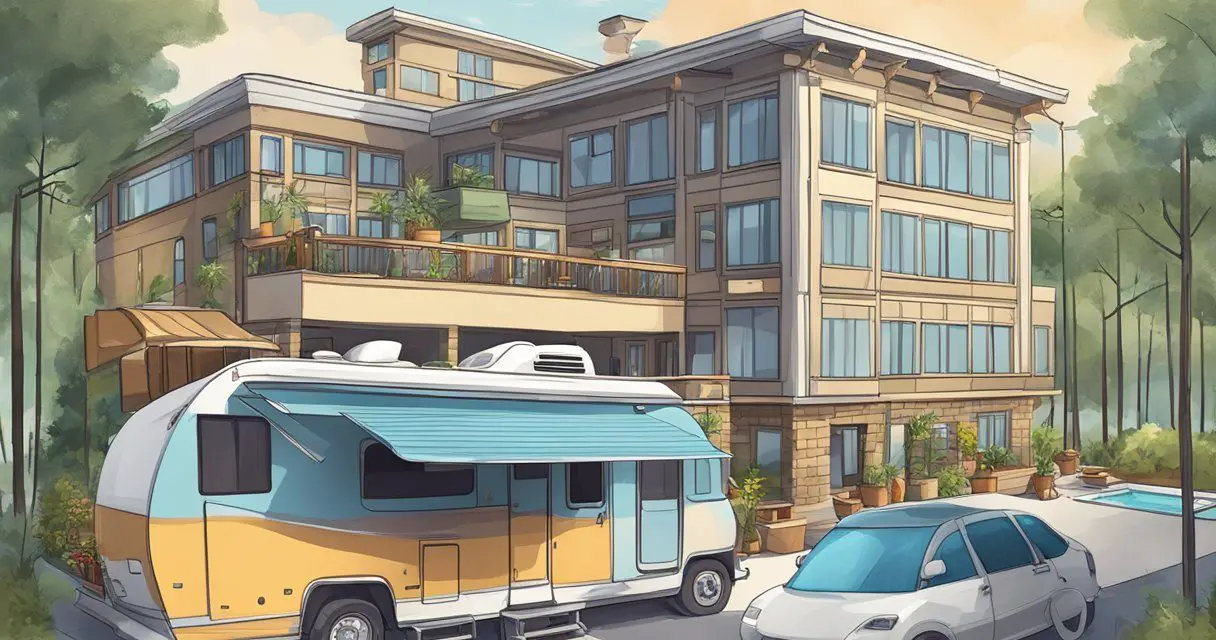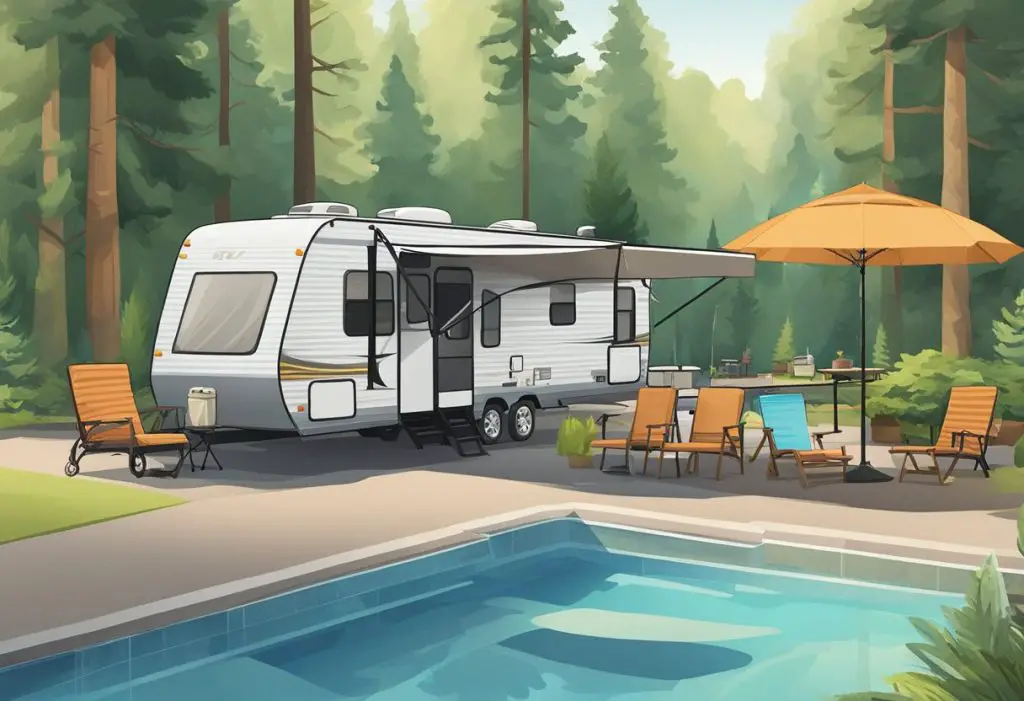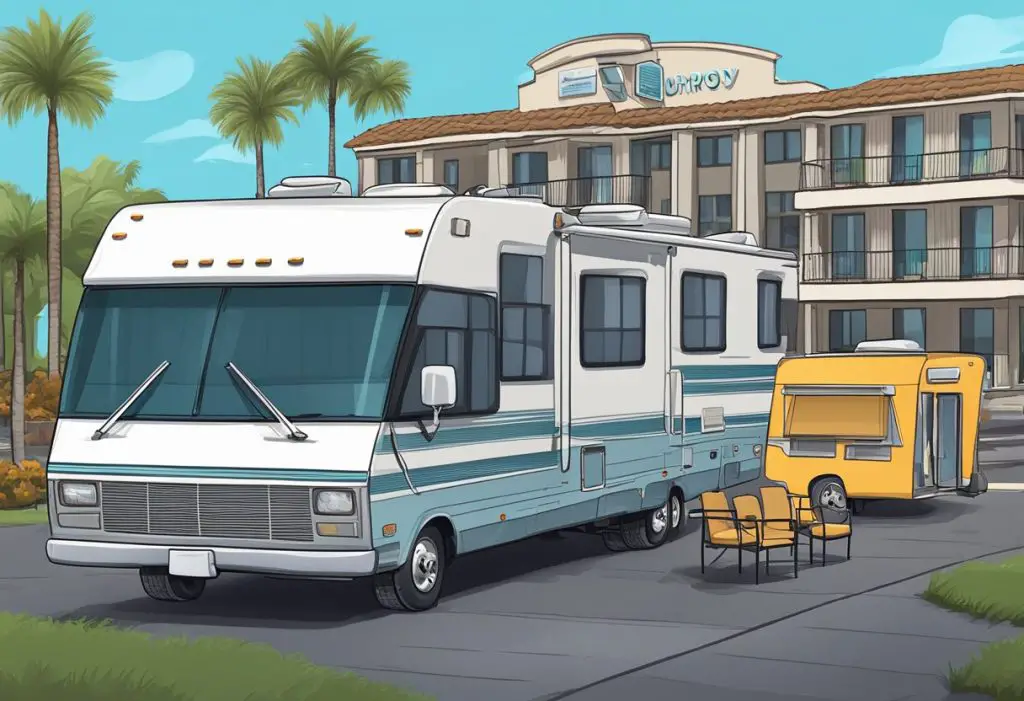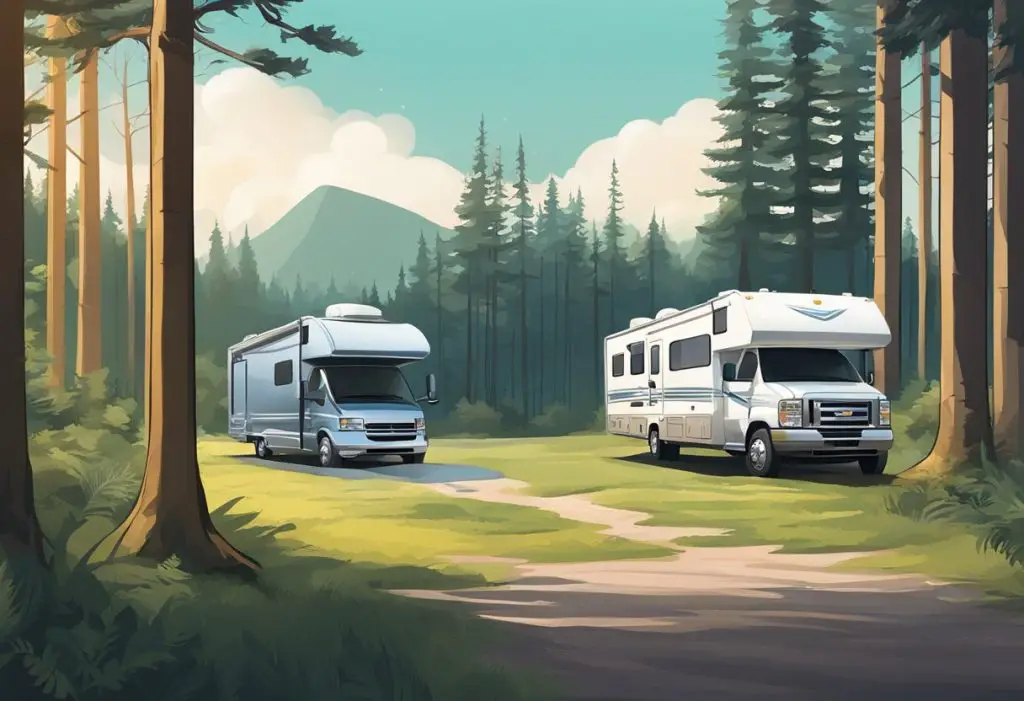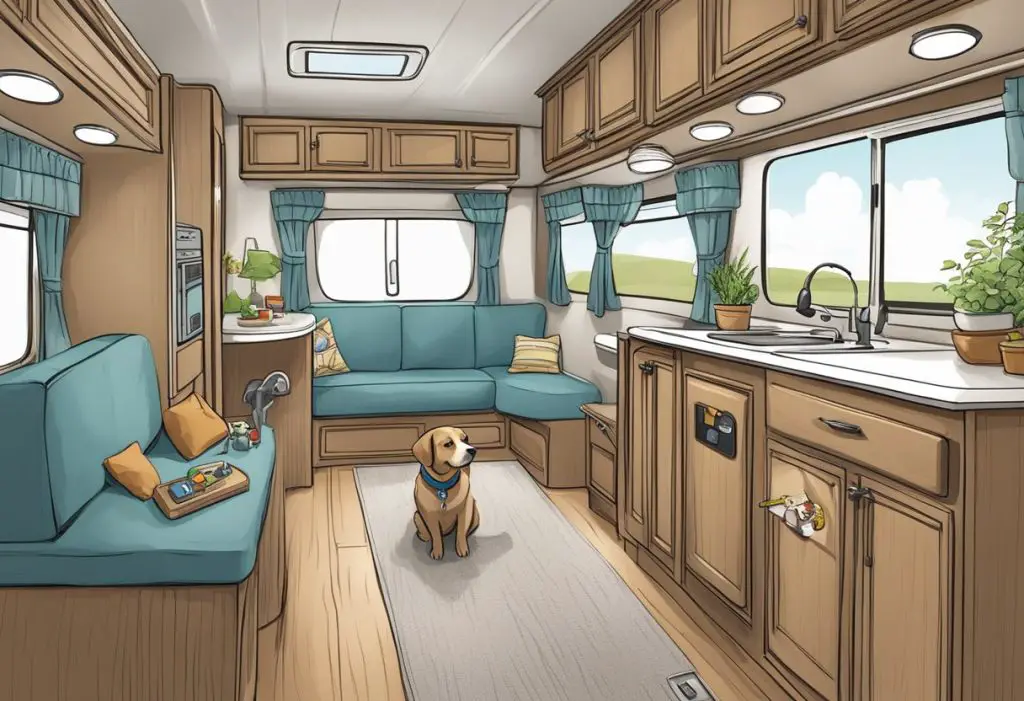When planning a vacation, one of the key decisions travelers face is choosing between the comfort of a hotel and the flexibility of an RV. Each option has its own set of benefits and challenges, catering to different preferences and travel styles.
Understanding the major differences between an RV and a hotel can help you make an informed decision about which is the better fit for your travel plans. Whether it’s cost, convenience, or the overall experience, both choices offer unique opportunities for adventure and relaxation.
1) Space and Layout
Would you like to save this article?
An RV offers a more compact and personal space compared to a hotel. Inside an RV, space is limited but highly functional, combining kitchen, sleeping, and living areas.
Hotels provide separate living arrangements, including larger individual rooms and dedicated spaces like lobbies and dining areas.
The layout in an RV is designed for efficiency and practicality, while hotels focus on comfort and luxury.
2) Flexibility and Mobility
Traveling by RV offers a level of freedom that’s hard to match. You can choose when to start the day and where to go next.
Staying in a hotel typically means having a fixed location. They would need to deal with check-in and check-out times.
An RV traveler can easily change plans and explore new destinations without prior notice. This can provide a spontaneity that isn’t usually available with hotels.
3) Views and Scenery
When it comes to views and scenery, both RVs and hotels offer unique experiences.
Hotels often provide rooms with stunning panoramas, especially those located near beaches, mountains, or cityscapes. A beachfront hotel, for example, can offer unmatched ocean views right from the window or balcony.
In contrast, RVs offer flexibility. Travelers can choose their preferred spot, whether it’s a mountain overlook, forest clearing, or lakeside retreat. This mobility means that scenic views are just a drive away.
The main advantage of RVs is the ability to change scenery at will. One day could be spent by a river, the next in a national park. This dynamic experience is unlike any fixed hotel stay.
Hotels, however, are stationary. While they offer comfort and convenience, they can’t match the changing landscapes that RV travel can provide. Both have their charm, depending on one’s preference for mobility or fixed location.
4) Costs and Pricing
The cost comparison between RVs and hotels can be a major factor for travelers. You may find that staying in an RV often results in savings. Renting an RV typically includes expenses like fuel, campground fees, and groceries.
Campground fees range from $25 to $80 per night, with weekly rates averaging $250 to $600. Meals cooked in the RV can offset higher fuel costs compared to driving a fuel-efficient car.
Staying in a hotel, on the other hand, means paying for accommodation and dining out. Hotel rooms can range from $150 to $250 per night, depending on the location and quality. You may also need to consider additional charges like resort fees or parking costs.
5) Access to Nature
When traveling in an RV, one of the top benefits is the direct access to nature. Campgrounds and RV parks are often situated in scenic areas, offering close proximity to national parks, forests, lakes, and beaches.
Unlike hotels, which are typically in urban settings, RVs allow travelers to wake up to stunning outdoor vistas. Imagine stepping out of your RV to a lakefront view or being surrounded by towering trees.
This connection to nature can provide a refreshing change of pace. Travellers can enjoy morning hikes, evening campfires, and the sounds of nature around them.
Kids and pets also have more space to roam and play, making it an ideal choice for families seeking adventure. The surroundings are part of the experience, not just a backdrop.
6) Social Interaction
Staying in an RV often encourages social interaction, particularly at campgrounds. Campers frequently gather around communal areas, creating opportunities to meet new people and share stories.
In contrast, hotels generally offer less social engagement. Guests typically keep to themselves, making it harder to strike up conversations with strangers in common spaces like lobbies and elevators.
Additionally, RV parks may host events like potlucks and group activities, fostering a sense of community. Hotel amenities usually focus on individual enjoyment, such as private dining and room service, reducing chances for spontaneous socializing.
7) Food and Cooking Options
When staying in a hotel, guests often find themselves eating out or ordering room service. Most hotel rooms lack kitchen facilities, limiting options for homemade meals. This can lead to higher food costs, especially if dining out for every meal.
In contrast, RVs provide more flexibility for those who enjoy cooking. An RV typically includes a small kitchen area with essential appliances like a stove, microwave, and refrigerator. This allows travelers to prepare their own meals, which can be both cost-effective and healthier.
Additionally, RV campers have the option to bring along their favorite ingredients and snacks. They can also cook outdoors using portable grills or campfires, making mealtime an enjoyable part of the camping experience.
In many campgrounds, stores offer basic groceries and snacks, simplifying the process of meal preparation for RV enthusiasts. This convenience can further enhance the appeal of choosing an RV trip over a hotel stay.
8) Personal Belongings
In an RV, travelers have the advantage of bringing along many of their personal items. They can pack favorite pillows, extra clothes, and even kitchen gadgets. This makes the trip feel more like home.
Staying in a hotel means limited space for personal belongings. Guests typically only have their suitcases and a small closet. This can make it tough to bring along everything desired. Although, many hotels do come with safes for valuables.
RV travelers don’t have to worry about forgetting essential items since they have most of them on board. In contrast, hotel guests might find themselves purchasing items they left behind.
The storage options in an RV often allow for better organization compared to a hotel room. This can be especially useful for families or those traveling for an extended period.
9) Privacy Levels
Privacy is a key difference between staying in an RV and a hotel.
In an RV, guests often have personal space without many distractions. There’s a sense of secluded comfort as they control their environment and choose their company.
Hotels, in contrast, can be bustling with other guests. Hallway foot traffic, shared facilities, and noise are more common, potentially disrupting privacy.
With RVs, travelers can escape to remote locations. Whether parked in a quiet countryside or a secluded beach, the sense of solitude is unmatched.
Hotels offer varying degrees of privacy depending on their design. Luxury suites may provide more solitude, while standard rooms are usually closer to communal areas.
In RVs, the walls are typically thinner, but the surroundings are controllable. This makes it easier for guests to create a peaceful retreat tailored to their preferences.
Hotels provide security staff and monitored premises, ensuring safety but sacrificing some solitude with constant surveillance and staff presence.
10) Pet Friendliness
Traveling with pets can be challenging, but RVs offer a solution. In an RV, pets can stay with their owners without additional fees or restrictions. This setup provides a familiar environment, reducing stress for the animals.
Many hotels have strict pet policies. They often charge non-refundable cleaning deposits and extra fees per night for each pet.
In contrast, an RV allows for easier stops for pet breaks. Owners can pull over anytime for bathroom and stretch breaks, making the journey more comfortable for both pets and people.
Having pets in an RV also eliminates the need to find nearby kennels. Pets can stay comfortably in their mobile home, surrounded by familiar smells and routines.

